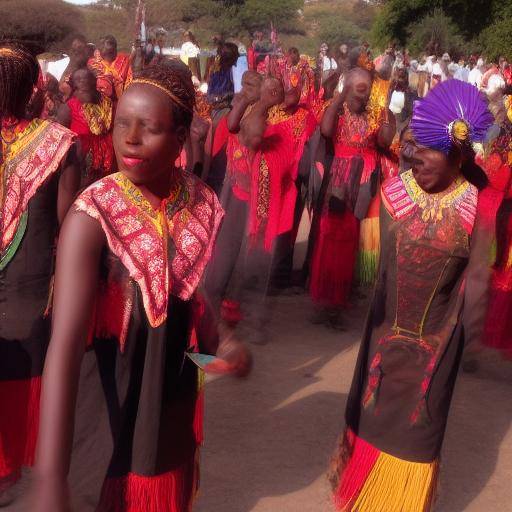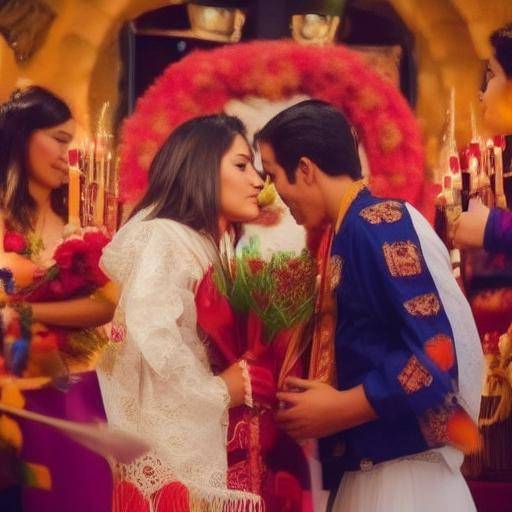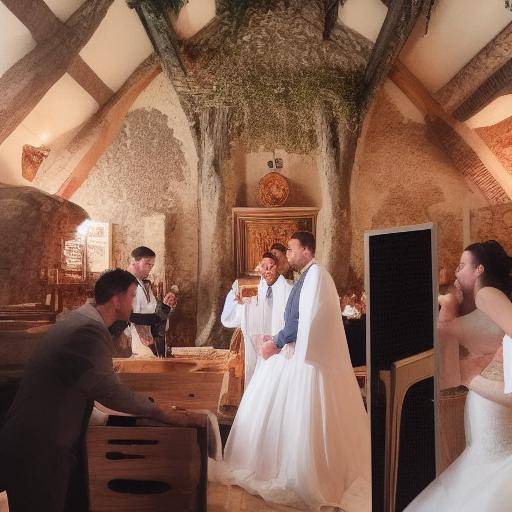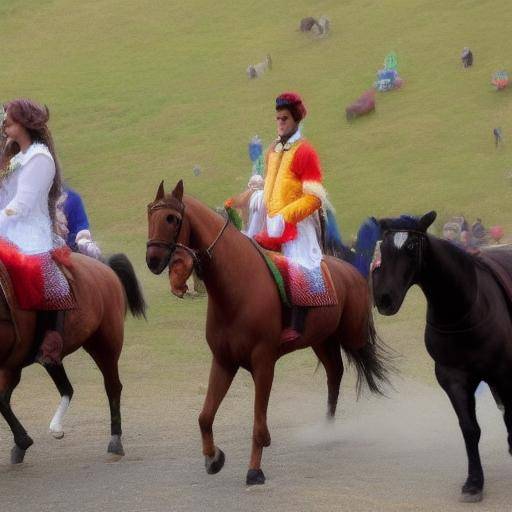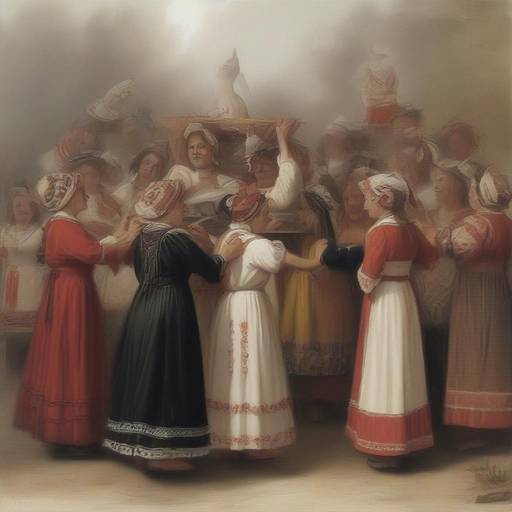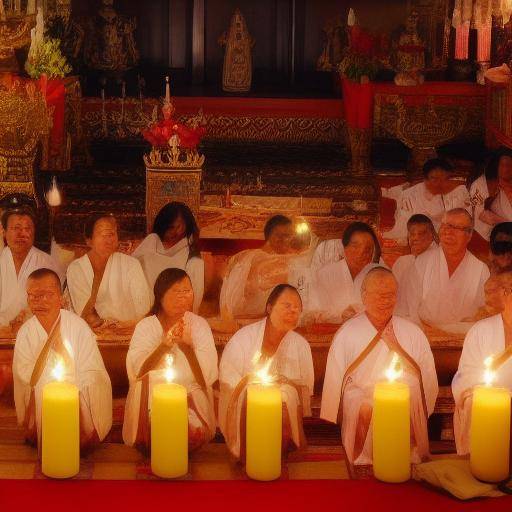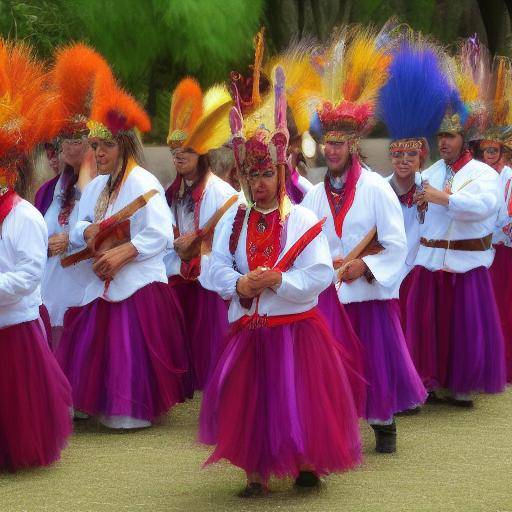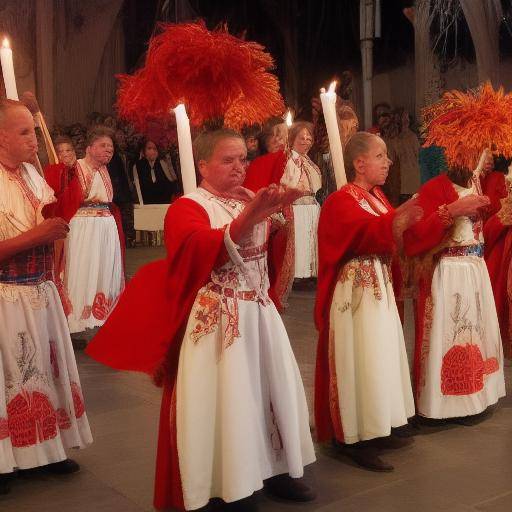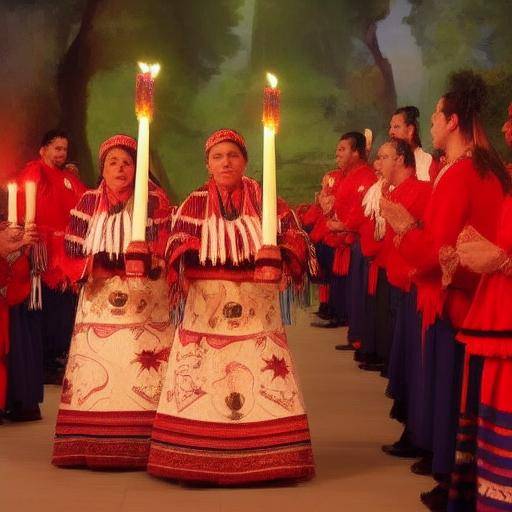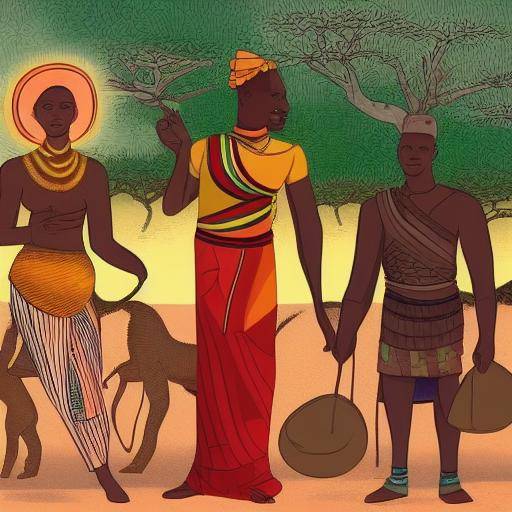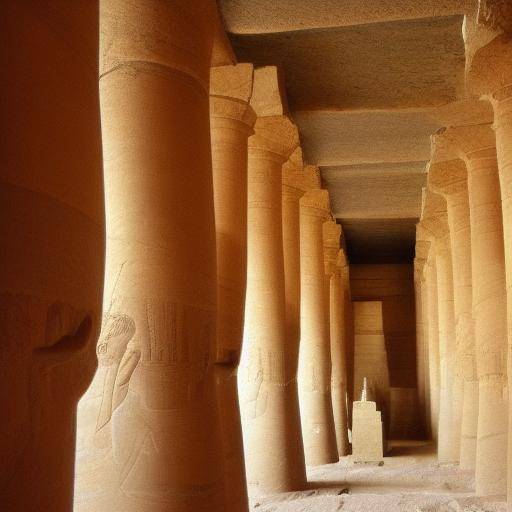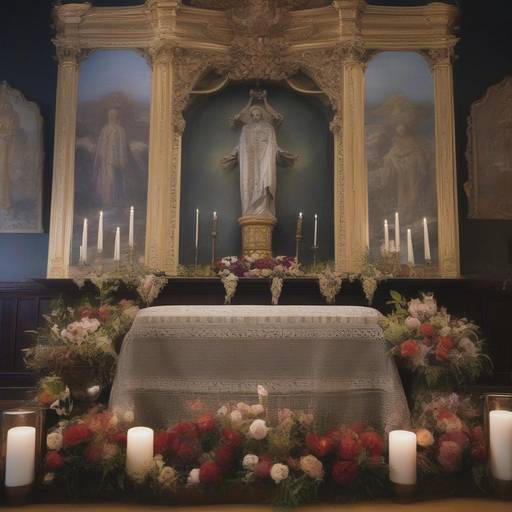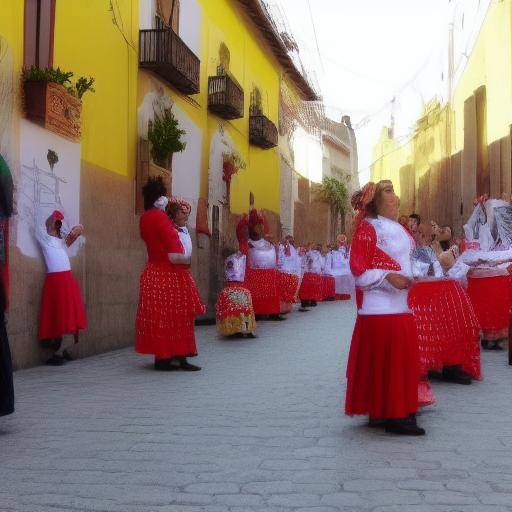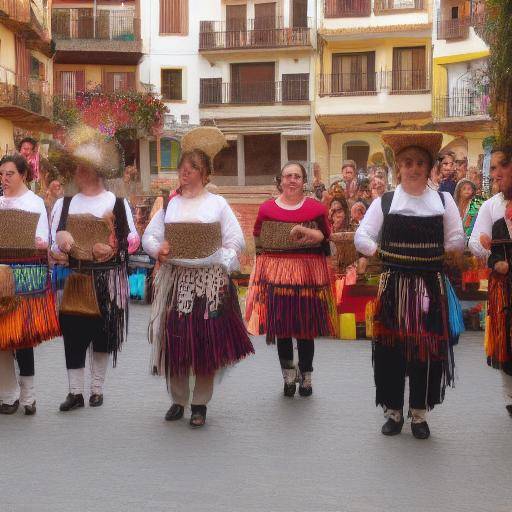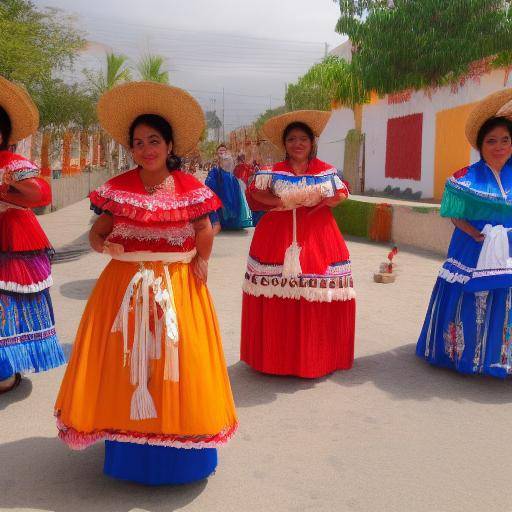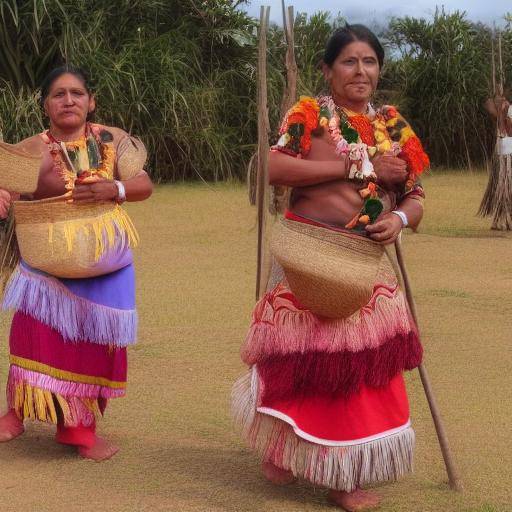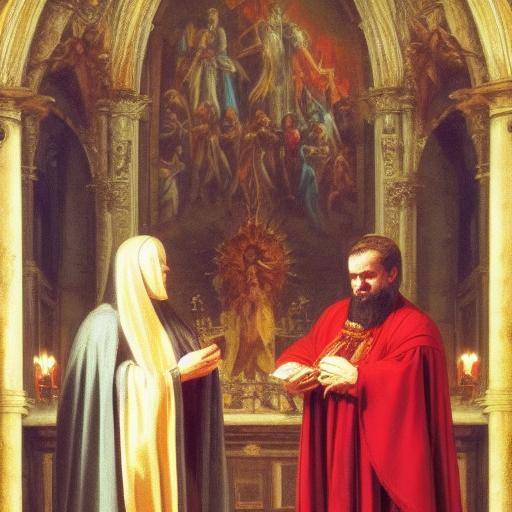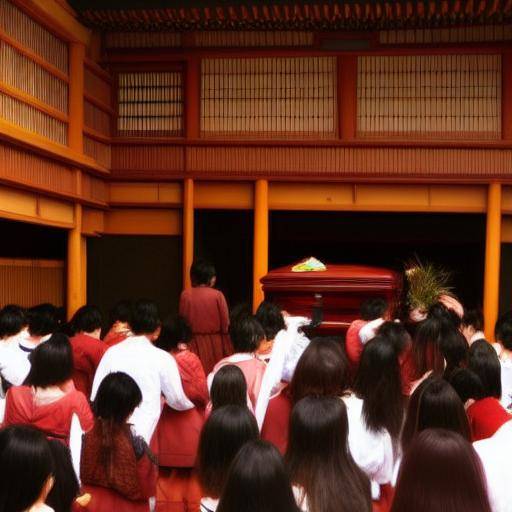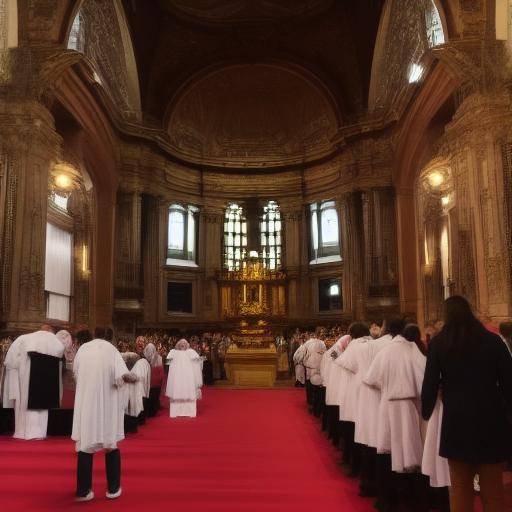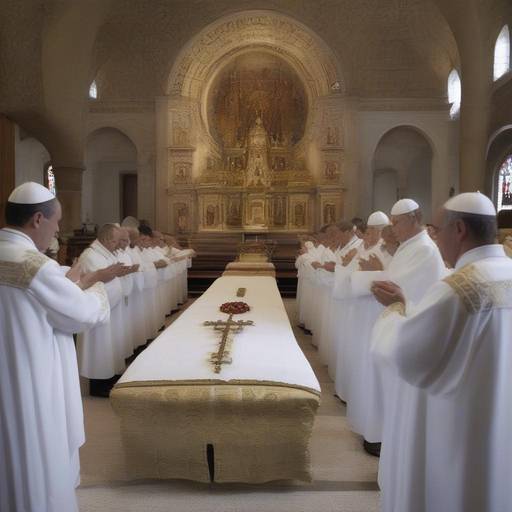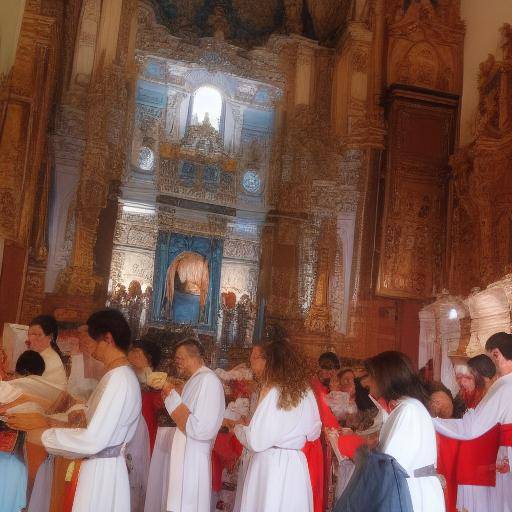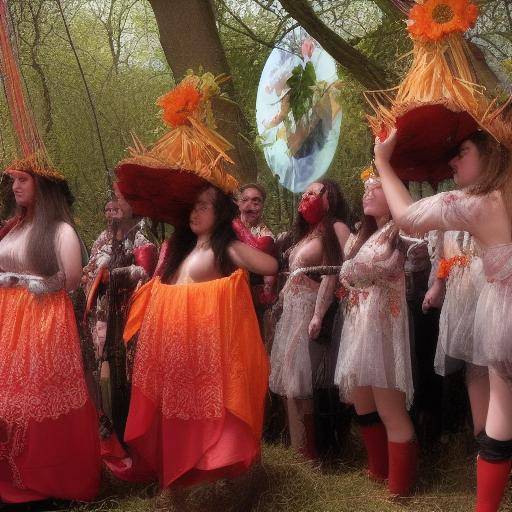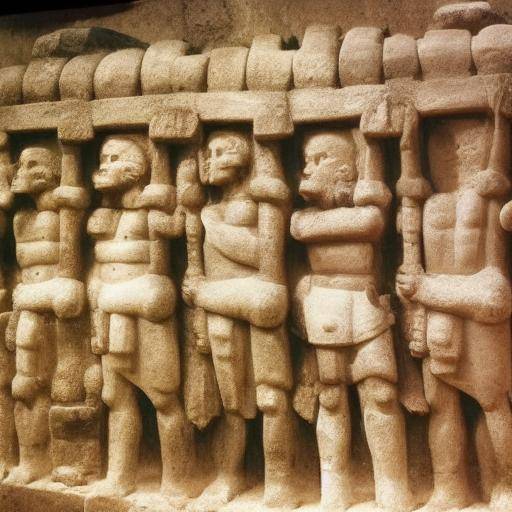
In ancient civilizations, rites of passage played a fundamental role in people's lives, marking important transitions such as birth, adolescence, marriage and death. These rituals not only represented a moment of transition, but were also imbued with cultural, social and spiritual significance. In this article, we will thoroughly explore the rites of passage in ancient civilizations, their historical importance, contemporary meaning, and their current relevance. From Mesoamerican civilizations to Asian cultures, we will enter the fascinating world of ancient rituals.
Introduction
The rites of passage, an expression of the daily life of ancient civilizations, represented a profound connection with the sacred and transcendent. Through these rituals, ancient civilizations honored vital transitions and fostered social cohesion. In this article, we will explore the history and context of the rites of passage, its relevance in various ancient cultures, its meaning in contemporary society and how they influence the way we perceive the world around us.
History and Context
The rites of passage have been an integral part of civilizations since time immemorial. From the ancient cultures of Mesopotamia to pre-Columbian civilizations in America, these rituals have varied enormously in form and function, but always maintaining a centrality in people's lives. During this section, we will explore the historical evolution of the rites of passage, from their origin to their development in various cultures over time.
Ancient Civilizations of Mesopotamia
In the ancient civilizations of Mesopotamia, such as Sumerian and Babylonian, the rites of passage were closely linked to religion and mythology. The passage from childhood to adulthood, for example, was celebrated with elaborate rituals that symbolized entry into adult life and responsibilities. These rites not only had a personal meaning, but also reflected the fundamental beliefs of Mesopotamian society around the family, the community and the cosmos.
Mesoamerican Civilizations
In Mesoamerican civilizations, such as Aztec and Maya, the rites of passage had a transcendental importance. The transition from childhood to adult life was celebrated with ceremonies involving evidence of value, spiritual initiations and participation in sacred rituals. These rituals not only marked physical maturity, but also symbolized the connection of the individual with the gods and the universe, thus establishing a transcendental role in society.
Deep analysis
Being an integral part of various ancient cultures, the rites of passage have been the subject of a deep analysis by historians, anthropologists, sociologists and religious experts. In this section, we will explore the current benefits, challenges and trends related to passing rites, as well as their continued importance in contemporary society.
Contemporary Importance of Pass Rites
Despite significant changes in modern society, rites of passage continue to play a crucial role in people's lives. From the marriage ceremony to funerals, these rituals mark vital transitions and provide a sense of continuity, belonging and meaning in a constantly changing world. The preservation and adaptation of these ancient rituals reflect the human need to give meaning to the transitions of life and to seek connection with the spiritual and the transcendental.
Current Challenges Related to Step Rites
Despite its importance, the rites of passage also face significant challenges in contemporary society. The impact of globalization, growing individualism and changes in family structures have led to a decline in the observance of traditional rituals. The rapid evolution of technology and communications has also influenced how people experience and participate in the rites of passage, posing new and exclusive challenges for their preservation and continued relevance.
Current Trends and Futures of Step Rites
As society continues to evolve, the rites of passage face the need to adapt to a changing world. Current trends reveal a renewed interest in the revaluation of traditional rituals, as well as the creation of new rituals adapted to contemporary circumstances. The search for a sense of identity, belonging and community in an increasingly fragmented and globalized world suggests that rites of passage will continue to play an important role in the future, perhaps adopting innovative and meaningful forms.
Exhaustive examination
In analyzing the rites of passage in ancient civilizations, it is essential to consider their applications, case studies and best practices. This section will provide an in-depth exploration of ancient rituals, their impact on contemporary society and how they remain relevant today.
Applications in Daily Life
Although the rites of passage may seem anachronistic at first sight, their influence and relevance extend to many areas of contemporary life. From the importance of graduation ceremonies to the observance of funeral rites, these rituals continue to play a key role in how people experience and understand vital transitions. In addition, the adaptation of ancient rituals to new circumstances, such as the celebration of weddings in modern environments, illustrates the ability of the rites of passage to evolve and maintain their meaning in changing times.
Case Studies and Best Practices
The analysis of case studies specific to different cultures allows us to better understand the diversity and universality of the rites of passage. Studying specific cases of initiation rituals, wedding ceremonies or funerals in ancient cultures gives us a unique vision of how these rituals evolved and adapted over time. In addition, identifying best practices in the preservation and adaptation of past rites provides valuable lessons on the evolution of traditions and their relevance in contemporary society.
Comparative analysis
By comparing the rites of passage in different cultures and civilizations, it is possible to identify patterns, recurring themes and significant differences that enrich our understanding of these rituals. By examining the initiation rituals in African cultures, for example, and comparing them with the passing rituals in ancient Greece, we can discover revealing similarities in the way societies have approached the vital transitions throughout history. This comparative analysis provides a global and multidimensional perspective of the rites of passage, enriching our understanding of its cultural and social importance.
Conclusions and FAQs
Conclusions
The rites of passage in ancient civilizations not only provided a framework for marking vital transitions, but also reveal the deep connection between the individual and the collective, between the earthly and the transcendental. Throughout history, these rituals have served as fundamental pillars in building individual and collective identities, providing a sense of continuity and meaning in people's lives. The preservation and revaluation of the passing rituals, both in ancient cultures and in contemporary society, remains crucial for the understanding of our own humanity and for the strengthening of the social and spiritual ties that unite us.
Frequently asked questions
What is the origin of the rites of passage in ancient civilizations?
The rites of passage have their origins in antiquity and have been documented in various cultures around the world. These rituals emerged as responses to the biological and social changes people experience throughout their lives, and are generally linked to religious, mythological or community beliefs.
What is the relevance of the rites of passage in contemporary society?
Although contemporary society has undergone significant changes, the rites of passage maintain their importance in the way people experience and give meaning to vital transitions. These rituals provide a sense of continuity, belonging and meaning in a constantly changing world, and continue to play a fundamental role in building individual and collective identities.
How have rites evolved over time?
The rites of passage have evolved according to social, cultural and technological changes, maintaining their relevance over time. Adapting to new realities, these rituals have incorporated innovations and reinterpretations, preserving their meaning while conforming to contemporary circumstances.
What challenges do the rites of passage face in contemporary society?
The rites of passage face challenges related to globalization, growing individualism and changes in social and family structures. Furthermore, the rapid evolution of technology and communications is impacting the way people participate and experience these rituals, raising unique challenges for their preservation and relevance.
What is the impact of the rites of passage on cultural and social identity?
The rites of passage have a significant impact on building individual and collective identities in the various cultures. These rituals strengthen social ties, transmit cultural values and provide a framework for understanding and giving meaning to vital transitions and transformations.
What is the role of the rites of passage in contemporary life?
In contemporary life, rites of passage continue to play a fundamental role in the way people experience and understand vital transitions. From the celebration of marriages to funeral rituals, these rituals continue to provide a sense of continuity, belonging and meaning in a changing world.
Concluding, the rites of passage in ancient civilizations continue to have a significant impact on contemporary society. Their preservation, adaptation and revaluation offer us the opportunity to better understand our own identities, social connections and transcendental aspirations. Exploring the history, current relevance and future of these rituals gives us a deeper insight into the complexity and wealth of human experience over time and through cultures.

